News
Civil Society Groups Urge FG To Halt Oil Asset Divestments in Niger Delta
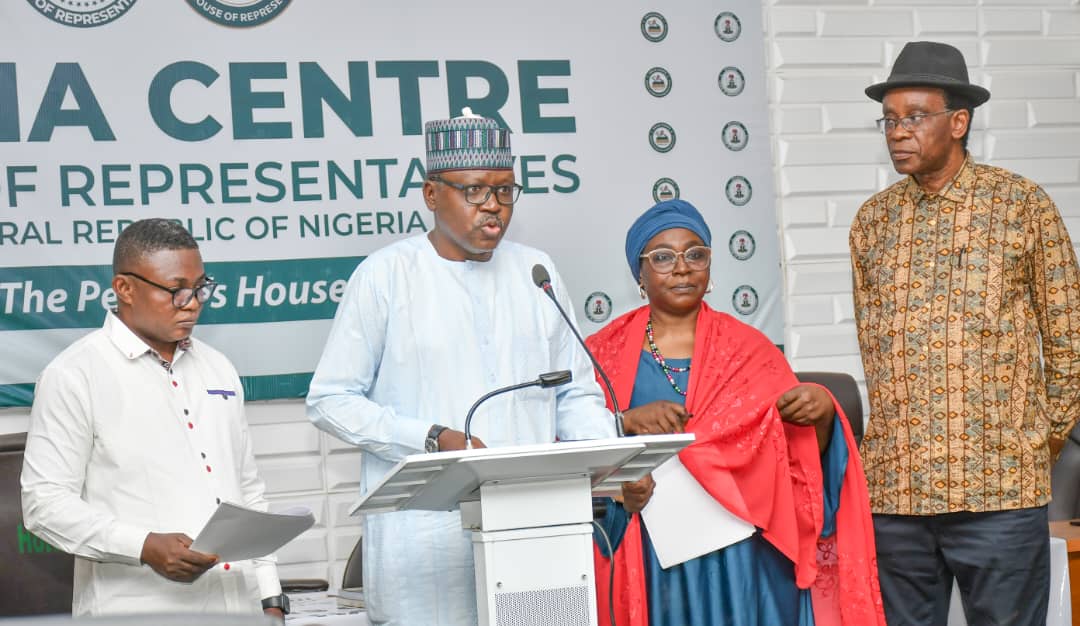
The Coalition of Civil Society Organizations (CSOs) has called on President Bola Tinubu and the National Assembly to stop all ongoing and planned divestments of oil assets in the Niger Delta region by oil companies.
This demand was outlined in a petition titled “Urgent Call to Halt All Divestment in the Niger Delta, Including Shell’s Refused Sale of SPDC Shares”, addressed to President Tinubu on December 16, 2024, and Speaker of the House of Representatives, Rep. Tajudeen Abbas on December 18, 2024.
During a press briefing in Abuja, Mr. Isaac Botti, Programmes Coordinator of Social Action Nigeria, and Reverend Nnimmo Bassey, Founder of Health of Mother Earth Foundation (HOMEF), highlighted the severe environmental and social impacts of oil exploration in the Niger Delta. They stated:
“We are here as representatives of Nigerian society organizations, community leaders, and concerned citizens to address a grave and urgent issue that threatens not only the people of the Niger Delta but the environmental and economic interests of Nigeria and the social future of all Nigerians”, he said.
The Coalition expressed concern over the divestment process by International Oil Companies (IOCs), particularly Shell’s proposed sale of its remaining shares in the Shell Petroleum Development Company (SPDC) to the Renaissance consortium, as well as similar moves by companies like TotalEnergies.
They warned that these actions could undermine national interests and exacerbate environmental damage in the region.
The Coalition detailed extensive damage caused by decades of oil exploration, including:
- Water Contamination: High levels of hydrocarbons in water sources have rendered them unsafe for drinking.
- Soil Degradation: Continuous oil spills have destroyed farmlands, threatening food security.
- Biodiversity Loss: Entire ecosystems have been decimated by oil spills.
Citing reports by the United Nations Environment Programme (UNEP) and the Bayelsa State Oil and Environment Commission (BSOEC), the Coalition provided alarming statistics. UNEP revealed benzene levels 900 times above safe limits in Ogoniland, while chromium levels in Bayelsa were over 1,000 times higher than World Health Organization (WHO) standards.
The BSOEC estimated it would cost at least $12 billion to remediate Bayelsa over 12 years, with a broader cleanup across the Niger Delta requiring $100 billion. Comparatively, the Deepwater Horizon oil spill in the U.S. saw BP pay $60 billion for damages from a single incident.
The Coalition emphasized that past divestments by Shell, ENI/AGIP, and ExxonMobil have left unresolved environmental liabilities:
- Shell’s sale to Aiteo in Nembe resulted in worsening pollution without proper cleanup efforts.
- ExxonMobil and ENI/AGIP similarly failed to ensure adequate environmental management post-divestment.
These cases have set a troubling precedent of IOCs avoiding accountability for environmental degradation.
The Coalition urged the federal government and the National Assembly to take immediate action by:
- Halting all IOC divestments until historical environmental liabilities are addressed.
- Ensuring inclusive consultations with host communities before divestments.
- Mandating that Shell, TotalEnergies, and other IOCs fund cleanup and remediation efforts.
- Upholding the regulatory independence of the Nigerian Upstream Petroleum Regulatory Commission (NUPRC).
- Creating an Environmental Restoration Fund to support long-term remediation.
They also demanded profit-sharing opportunities for host communities and the inclusion of gas flaring cessation in divestment agreements.
The Coalition stressed that approving Shell’s SPDC share sale without addressing environmental and social liabilities would undermine Nigeria’s sovereignty and well-being.
“Approving Shell’s or TotalEnergies’ divestment in its current form without addressing the profound environmental and social costs would be a grave injustice to the people of the Niger Delta and could lead to significant unrest in the region.”, it stated.
The Coalition reaffirmed its commitment to ensuring environmental justice and called on President Tinubu and the National Assembly to prioritize the welfare of Nigerians over corporate interests.
News
Benue LG chairman gives Fulanis 48hrs to leave all farmlands
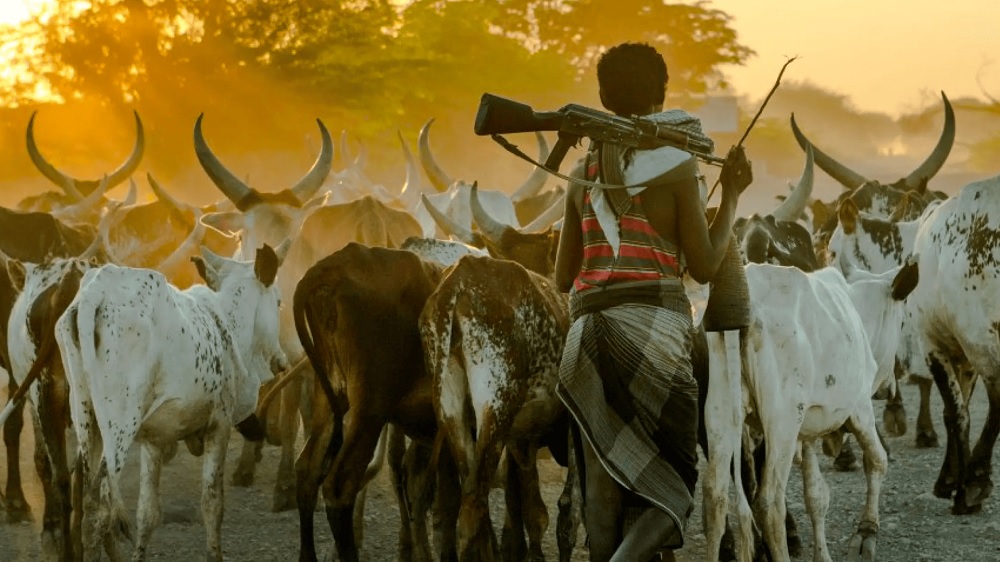
The chairman of Agatu Local Government Area in Benue State, James Melvin Ejeh, has given Fulani herdsmen a 48-hour notice to leave all agricultural lands.
This announcement was made during a stakeholders’ meeting on Saturday, April 26, 2025, at the council secretariat in Obagaji.
The meeting included traditional leaders, representatives from the Fulani community, youth leaders, and security personnel to discuss the increasing concerns regarding herders’ activities on farmland as the planting season nears.
The Chief Press Secretary to the Agatu LGA Chairman, Obochi Solomon, reported that Ejeh highlighted the importance of safeguarding agricultural activities in Agatu in light of the upcoming planting season.
He remarked that agriculture is essential to the local economy and that farmers should have unhindered access to their lands.
Ejeh also acknowledged the current peace in the region but reiterated that maintaining uninterrupted farming activities is of utmost importance.
“Our farmers must cultivate without disruption. We will do everything necessary to create a safe environment for them,” he said.
The statement further disclosed that during the meeting, the Ado of the Fulani requested a one-week extension to allow the herders to prepare for their relocation, a request that the council approved.
The CPS noted that the General Youth Chairman of Agatu LGA, Oloche Silas, committed on behalf of the Agatu youth to support the peaceful evacuation process and to avoid any acts of violence.
Security personnel, including members of the Nigeria Police Force and the Department of State Services (DSS), were reported to have praised the peaceful resolution of the issue and promised to offer necessary assistance during the relocation.
Additionally, representing the Och’Agatu, Chief John Agidani, spoke at the meeting, commending the leadership of the Council Chairman and urging all parties to adhere to the agreement.
News
Five suspected kidnappers eliminated by police in Delta

Five alleged kidnappers have reportedly died after a fierce gun battle with operatives of the CP-Special Assignment Team.
The suspects were confirmed dead in a hospital they were rushed to for medical attention.
Delta State Police Public Relations Officer, SP Bright Edafe who confirmed the development in a statement, stated that the incident occurred on 21st April 2025.
The police image maker disclosed that operatives of the CP-Special Assignment team, acting on intelligence relating to kidnapping in Ubuluku, Isseluku, Issele-Asagba, and environs by one Bello Abubakar and his gang members, stormed one of their hideouts in Agu-Amawbia forest, Anambra State.
SP Edafe pointed out that during the raid of the suspects hideout in the forest, the operatives recovered one AK-47 rifle and one hundred and thirty-two rounds of live ammunition.
He further said the investigation was extended to another of their hideouts in a forest between Issele-Asagba and Utulu, where the said Bello Abubakar and his gang members were waiting in ambush.
According to the police image maker, the suspected kidnappers attacked the policemen in a fierce gun battle, but the team, who were aware of the battle ahead, reciprocated in like manner.
SP Edafe added that the manhunt for other injured fleeing suspects is ongoing.
News
Francophone Ambassadors, Nigeria Unite To Fight Against Climate Change
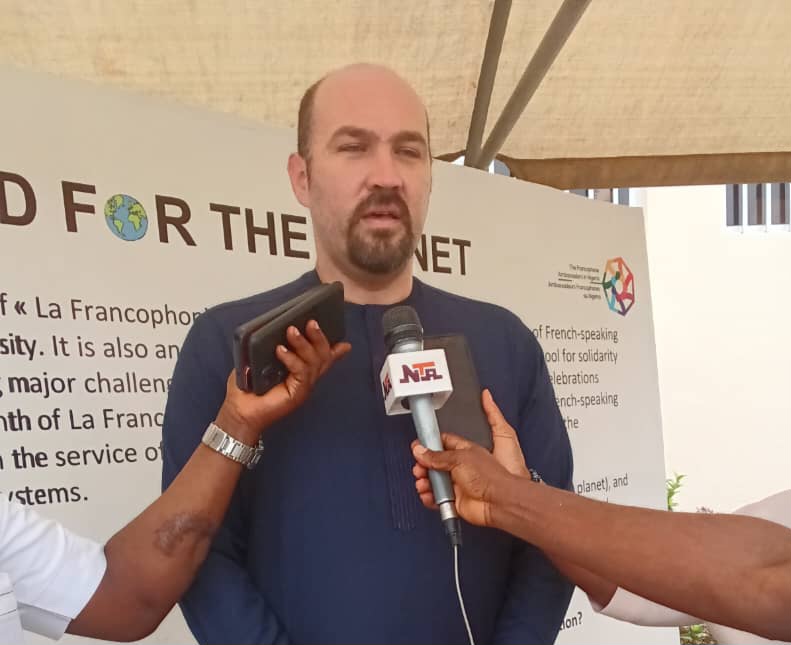



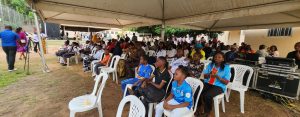
-

 News21 hours ago
News21 hours agoDSS arrests Army major for planning unrest in Delta
-

 News13 hours ago
News13 hours agoGunmen abduct two senior LG workers, three others
-

 News21 hours ago
News21 hours agoFCT minister, Wike announces new appointments
-

 Politics21 hours ago
Politics21 hours agoSee list of APC Delta stakeholders holding meeting in Abuja on power sharing formula with Oborevwori
-
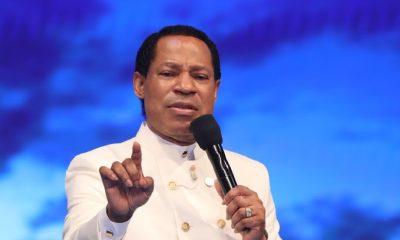
 News22 hours ago
News22 hours agoCOVID-19 Vaccine Killed Pope Francis, says Pastor Oyakhilome
-
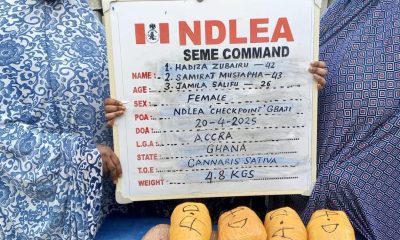
 News15 hours ago
News15 hours agoNDLEA storms Lagos hotel, recovers N1.042billion illicit drug consignments(Photos)
-

 News15 hours ago
News15 hours agoArmy Chief condemns beating, harassing civilians in military uniform says, it’s wrong
-
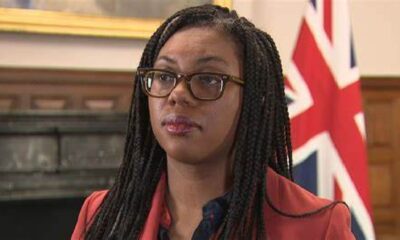
 News22 hours ago
News22 hours agoUK Tories mull replacing Badenoch as party leader after poor ratings


















